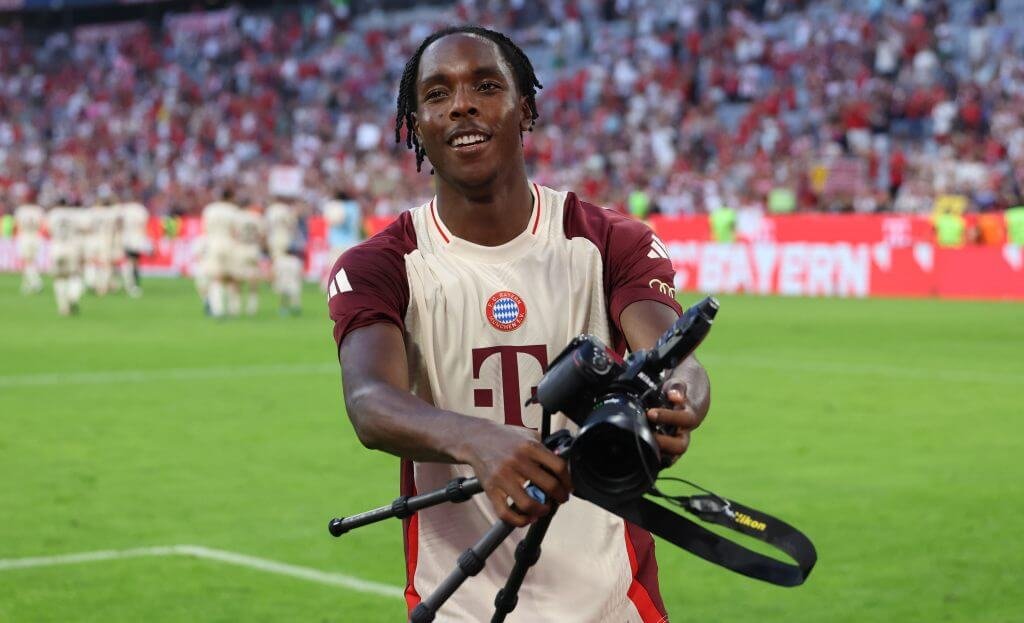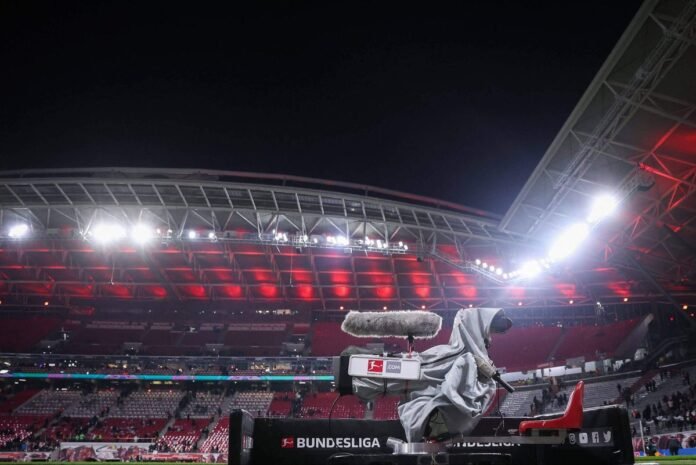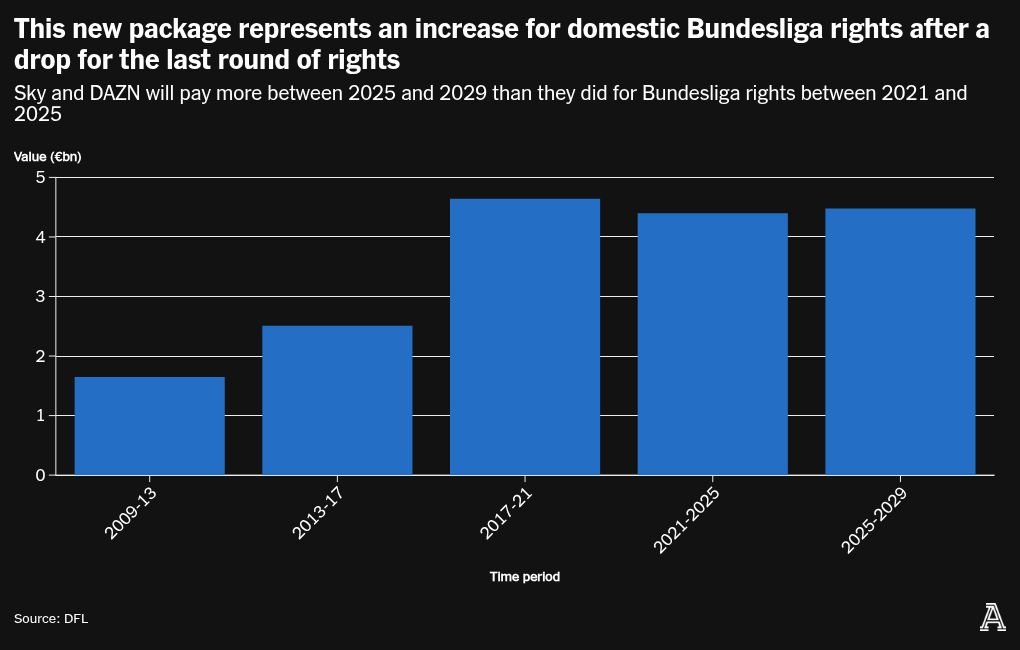The Deutsche Fussball-Liga (DFL), who operate the Bundesliga divisions, have announced a new domestic broadcasting contract worth €1.121billion (£930m) per season.
The new deal will be worth €4.484billion over four years, beginning in the 2025-26 season and running until the end of 2028-29. The agreement represents a 2 per cent increase on the previous contract, which will finish at the end of this season.
Here, The Athletic explains the significance of the deal, how it is viewed in Germany and what it means for the Bundesliga going forward.
What is the new broadcasting contract?
It runs for a total of four years at €1.121billion (£930m) per season, which is €21million (£17.4m) more than the previous agreement. The Bundesliga broadcasters in Germany are currently Sky Deutschland and DAZN, the streaming platform, and that will remain the case — albeit with differences.
The Saturday Konferenz, which shows four or five games simultaneously on a Saturday afternoon, will move from Sky to DAZN for the first time. The Friday (DAZN), Saturday night (Sky) and Sunday afternoon (DAZN) games remain unaffected.
Sky’s sports package currently costs €25 per month, while DAZN subscriptions are marginally more expensive, at €29.99 per month.
The deal is split between Sky and DAZN (Alex Grimm/Getty Images)
How will the deal be viewed in Germany?
Positively. Hans-Joachim Watzke, the Borussia Dortmund CEO, has already described it as “a great result” and a “good day for German professional football”.
Steffen Merkel, co-CEO of the DFL, who operate the Bundesliga, said: “The result of the tender underlines the unbroken popularity of German professional football, despite economically challenging times. Trust and unity within the league association have paid off. At the end of an intensive process, a very good and comprehensively secured financial result has now been achieved.”
Marc Lenz, the other CEO, described it as “a key foundation for the positive development of the Bundesliga and Bundesliga 2.”
With good reason, too, because this has arrested a downward trend. While the equivalent broadcasting contract between 2017 and 2021 reached €4.64billion — a record — it then fell by €200million for the current period (2021-2025), in the first tender following the pandemic.
This will be seen as a heartening recovery.
How does it compare to the Premier League and other top European leagues?
Very favourably — apart from to the Premier League. The English top flight will start to earn €2.02billion (£1.67bn) per season from 2025 onwards and remains out in front by a long way.
Elsewhere, the picture is not healthy. Ligue 1’s combined deal with DAZN and BeIN Sport is worth €500million each year. In Italy, Sky and DAZN are paying €900m per season for the rights to broadcast Serie A. La Liga’s current deal, split between Telefonica and DAZN, is worth €990m, leaving the Bundesliga in a comfortable second place.
There is a caveat, in that the DFL represents both Bundesliga divisions — the first and second tiers of German football and 36 teams in total — and so it is not truly an apples-to-oranges comparison with the other leagues — but the trend and general financial health of the Bundesliga is the bigger takeaway.
What’s the situation with global/English-language rights?
Not so good. The Premier League, again, is the benchmark: it currently earns €1.69billion annually from rights sales overseas. That compares with €983million per season in LaLiga, €406.69m for Serie A and €263.08m for the Bundesliga.
There’s work to do. Commercially, the Bundesliga has suffered from a lack of competition — Bayern Munich have won eleven of the last 12 titles — and the league as a whole does not attract stars in the number that English football does. The effect has been to dim its appeal overseas.

Bayern’s Tel with a camera (Alexander Hassenstein/Getty Images)
Anything else I need to know about?
Yes. An awkward situation. Back in April, DAZN thought they had won the rights for Friday nights and Saturday afternoons (Package B), with a bid of €1.6billion over five years. The DFL wanted financial assurances over those payments and demanded that they be made within a very short time period. When DAZN was unable to comply, the package was originally awarded to Sky.
However, DAZN took the matter to arbitration and the court ruled in their favour, compelling the package to be put back out to tender — and, again, with DAZN as the winner.
(Top photo: Ronny Hartmann/AFP via Getty Images)
Read the full article here



